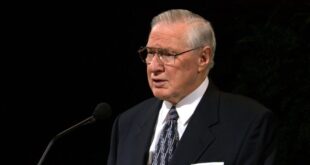In recent years, we’ve witnessed a troubling trend within religious institutions: the gradual erosion of long-standing doctrines and beliefs in favor of accommodating societal shifts. This phenomenon, particularly prevalent from 2010 to 2024, raises serious questions about the integrity of faith and the purpose of religious teachings.
The core tenet of most religions, especially within Christianity, is the transformation of the individual through faith. The gospel is meant to be a guiding light, leading sinners towards redemption and spiritual growth. However, we now face a paradoxical situation where sinners, instead of being changed by the gospel, are actively reshaping religious doctrines to fit their own worldviews.
This shift is not merely a matter of interpretation or modernization; it represents a fundamental departure from thousands of years of scripture and tradition. Religious institutions that once stood firm on their principles are now capitulating to the demands of a generation that seems more concerned with avoiding offense than seeking spiritual truth.
The Futility of Appeasement
The irony of this situation cannot be overstated. Those demanding these changes often harbor a deep-seated antipathy towards organized religion. Yet, religious leaders and institutions, in their misguided attempt to appease these critics, are compromising the very foundations of their faith. It’s a futile endeavor – altering core beliefs will not suddenly endear religion to its detractors. If anything, it only serves to weaken the faith of existing believers and dilute the message for future generations.
This phenomenon was not unforeseen. In fact, many religious texts, including the Bible, predict such a time when false teachings would proliferate and many would turn away from sound doctrine. We are witnessing the fulfillment of these prophecies in real-time, as churches and religious organizations cave to societal pressures.
One of the most visible fronts in this ideological battle is the LGBTQIA+ movement’s influence on religious institutions. Many churches, in an attempt to appear inclusive and progressive, have begun to reinterpret or outright ignore biblical teachings on sexuality and gender. This is not a matter of showing love and compassion to all individuals – which is indeed a core Christian value – but rather a wholesale change in doctrine to accommodate practices that have traditionally been considered sinful.
Some churches have removed references to gender in their liturgy and hymns, replacing words like “father” and “he” with more gender-neutral language to be more inclusive. This is seen by some as caving to LGBTQ ideology rather than staying true to Scripture.
The Financial Fallacy
The motivations behind these changes are complex, but one cannot ignore the potential financial incentives. Some argue that churches are altering their stance to attract or retain members from these communities. However, this reasoning is flawed on multiple levels. Firstly, the financial gain from such memberships is likely negligible compared to the potential loss of long-standing members who feel their church has strayed from its roots. Secondly, and more importantly, compromising on core beliefs for monetary gain is a betrayal of the very purpose of religion.
As of now, there are only a handful of major Christian denominations that have resisted this trend: Orthodoxy, Catholicism, certain Protestant denominations, and the Church of Jesus Christ of Latter-day Saints. These institutions have, to varying degrees, maintained their traditional stances on controversial issues. However, the pressure to conform to societal norms is relentless, and one wonders how long they can hold out.
Among these, the Catholic Church seems most vulnerable to change. Despite its long history and hierarchical structure, it has shown signs of potential shifts in doctrine under the current papacy. While no major doctrinal changes have been made, the tone and approach to certain issues have softened, leading some to speculate about future alterations to church teaching.
This situation presents a dilemma for true believers. On one hand, there’s a desire to show love and acceptance to all individuals, regardless of their lifestyle or choices. On the other hand, there’s a commitment to upholding what they believe to be divine truth. The challenge lies in finding a balance between these two imperatives without compromising the core message of the gospel.
Certain evangelical churches have stopped preaching against abortion, fearing backlash, even though the Bible clearly condemns the taking of innocent life. This is an example of compromising biblical principles to appease cultural demands.
Preserving Faith in a Changing World
It’s crucial to understand that maintaining traditional religious teachings is not about hatred or exclusion. Rather, it’s about preserving what believers consider to be eternal truths that transcend current cultural trends. The purpose of religion, particularly Christianity, is not to make people feel comfortable in their sin, but to guide them towards a higher spiritual plane.
Moreover, the idea that religious institutions must change to remain relevant is fundamentally flawed. Throughout history, religions have often stood in opposition to prevailing cultural norms. Their strength has come not from conformity, but from offering an alternative worldview – one that challenges individuals to live up to a higher standard.
The danger in capitulating to societal pressures is that it sets a precedent for further compromises. Once a religion starts altering its core beliefs to fit current trends, where does it stop? Today it might be issues of sexuality and gender; tomorrow it could be something else entirely. This slippery slope leads to a faith that is indistinguishable from secular humanism – devoid of any divine authority or transformative power.
Furthermore, by changing fundamental doctrines, religious institutions risk losing their unique identity and purpose. If a church’s teachings become indistinguishable from prevailing societal norms, what reason is there for its existence? The power of religion lies in its ability to offer something different, something transcendent, that cannot be found in secular society.
It’s also worth noting that this trend of doctrinal compromise is not limited to Christianity. Many other religious traditions are facing similar pressures to adapt their teachings to modern sensibilities. This global phenomenon suggests a broader cultural shift away from traditional religious values towards a more relativistic worldview.
The solution to this dilemma is not simple, but it must start with a recommitment to foundational beliefs. Religious leaders and adherents must be willing to stand firm in their convictions, even when it’s unpopular to do so. This doesn’t mean being unloving or exclusionary, but it does mean being clear about what their faith teaches and why.
At the same time, there needs to be a renewed emphasis on education within religious communities. Many believers, especially younger ones, are ill-equipped to defend their faith in the face of cultural opposition. By deepening their understanding of their religious traditions and the reasoning behind various doctrines, believers can be better prepared to engage with a skeptical world without compromising their beliefs.
In conclusion, the current trend of religious institutions altering their doctrines to fit societal norms is a dangerous departure from the true purpose of faith. While the desire to be inclusive and relevant is understandable, it should not come at the cost of compromising core beliefs. The gospel is meant to transform sinners, not be transformed by them. As we move forward, it’s crucial for religious institutions to find ways to engage with modern society while staying true to their fundamental teachings. Only by maintaining this balance can they hope to fulfill their spiritual mission in an increasingly secular world.





